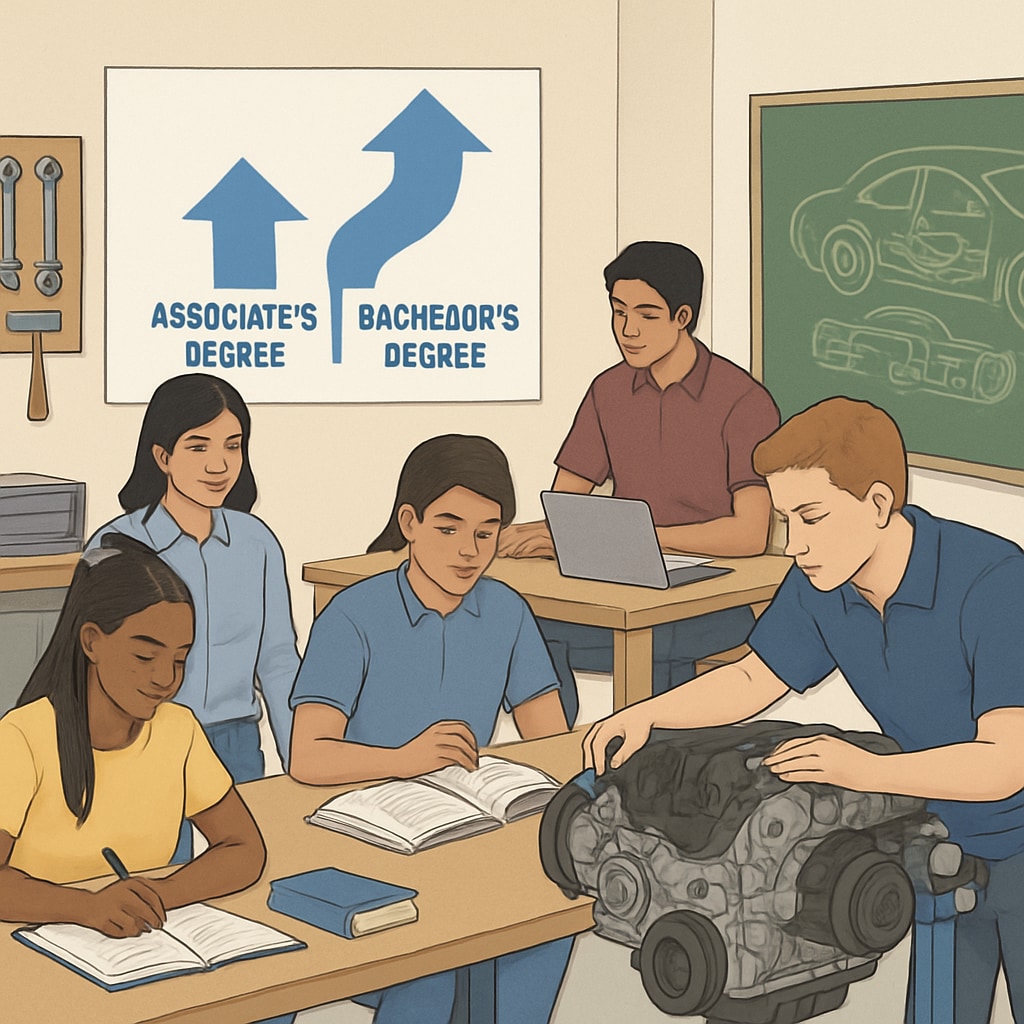For military personnel with an associate degree in automotive technology, the journey toward a bachelor’s degree can be both rewarding and strategic. Pursuing a higher degree not only enhances technical expertise but also opens doors to broader career opportunities. Key considerations in this transition include understanding credit transfer policies and selecting a compatible bachelor’s degree program that aligns with prior education in automotive technology.

Choosing the Right Bachelor’s Degree
When transitioning from an associate degree in automotive technology to a bachelor’s degree, it’s essential to identify programs that align with your technical background. Common options include:
- Automotive Engineering Technology: This program expands on mechanical and technical skills, preparing graduates for roles in design, manufacturing, or management within the automotive industry.
- Business Administration: For those interested in leadership roles, this degree provides knowledge in organizational management, finance, and operations, which can be applied in automotive businesses.
- Industrial Technology: A broader focus on technology and management, this degree can lead to careers in manufacturing, quality assurance, or technical sales.
Consider your career goals and interests when selecting a program. For instance, if you aspire to work in research and development, a degree in engineering technology may be ideal. Conversely, if you want to manage a team or run your own automotive shop, business administration could be the better fit.
Understanding Credit Transfer Policies
One of the most significant advantages of holding an associate degree is the potential to transfer credits to a bachelor’s program, reducing the time and cost required to graduate. However, credit transfer policies vary by institution. Here are key factors to consider:
- Accreditation: Ensure that both your associate degree program and the prospective bachelor’s degree institution are accredited. This is often a prerequisite for credit transfers.
- Articulation Agreements: Some colleges have agreements with community colleges or technical schools, guaranteeing the acceptance of specific courses or credits.
- Course Relevance: Credits are more likely to transfer if your previous coursework directly relates to the bachelor’s program. For example, technical courses in automotive systems align well with engineering or industrial technology degrees.
To maximize credit transfer, consult an academic advisor early in the process. They can guide you in selecting a program that accepts the majority of your previous coursework, streamlining your path to graduation.

Balancing Education with Military Commitments
For active-duty military personnel or veterans, balancing education with other responsibilities can be challenging. Fortunately, many universities offer flexible learning options, such as:
- Online Programs: These allow you to study from any location, making it easier to integrate education into your schedule.
- Military-Friendly Institutions: Some universities specialize in serving military students, offering resources like veteran support services and tuition discounts.
- Credit for Military Training: Many institutions recognize military training and experience as equivalent to college coursework, further reducing the time needed to earn a degree.
Additionally, explore funding opportunities such as the GI Bill, which can cover tuition, housing, and other education-related expenses, making the transition to higher education more affordable.
The Long-Term Benefits of a Bachelor’s Degree
Investing in a bachelor’s degree can significantly enhance career prospects. Graduates often qualify for higher-paying positions, leadership roles, and specialized fields. For example:
- Career Advancement: A bachelor’s degree can position you for roles like automotive engineer, plant manager, or technical consultant.
- Increased Earnings: According to the U.S. Bureau of Labor Statistics, individuals with a bachelor’s degree earn approximately 67% more than those with only an associate degree over their lifetime.
- Broader Opportunities: With advanced education, you can transition to industries adjacent to automotive technology, such as aerospace or renewable energy.
Ultimately, the decision to pursue further education is an investment in your future, offering not only financial benefits but also personal growth and job satisfaction.
Readability guidance: Use short paragraphs and lists to summarize key points; ensure transitions between sections for better flow. Distribute keywords naturally across the text, and maintain a professional tone.


